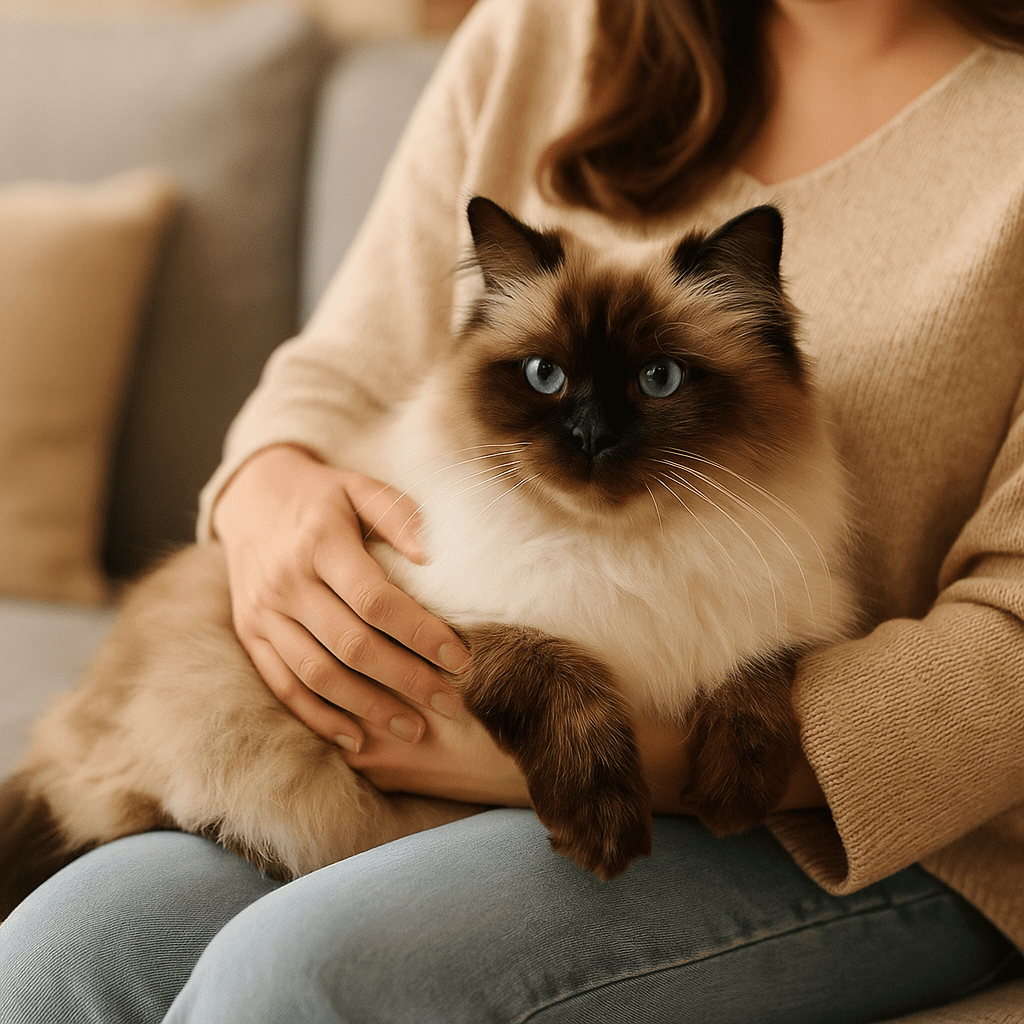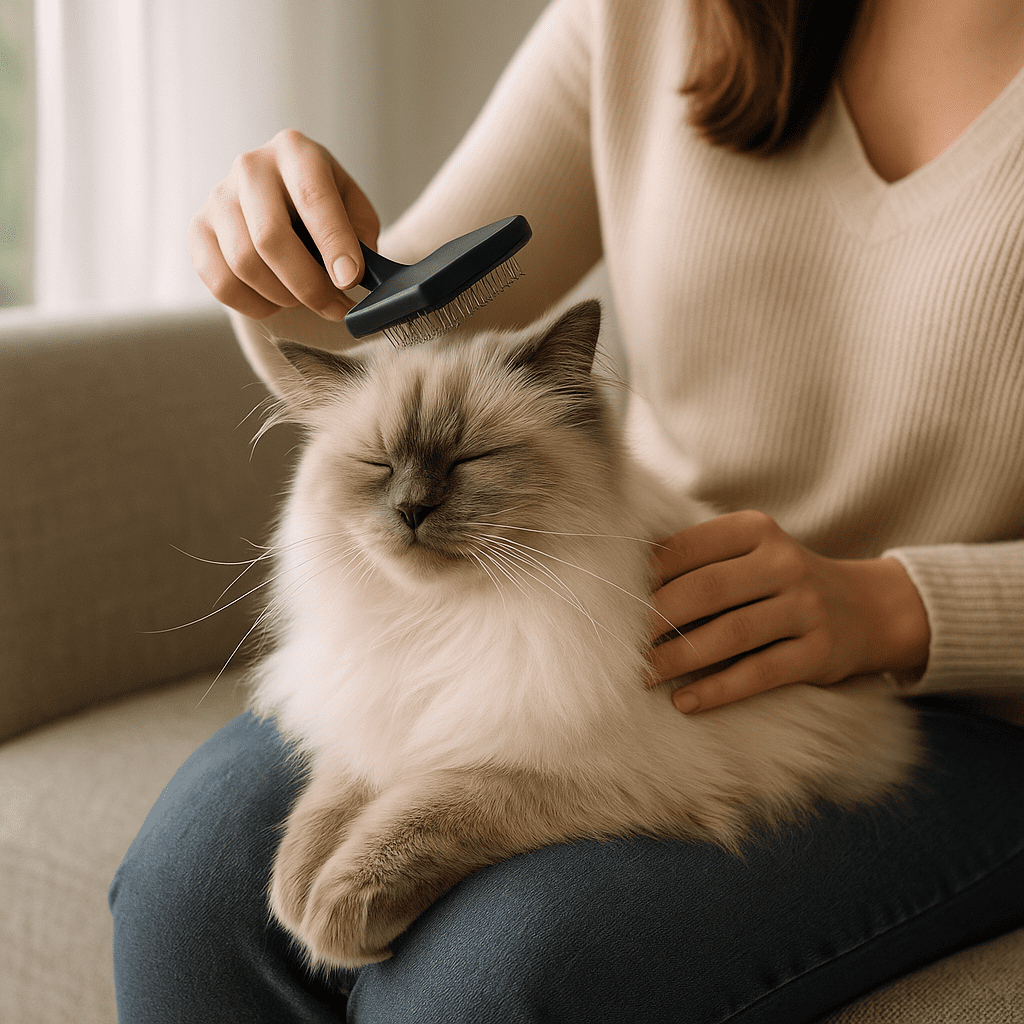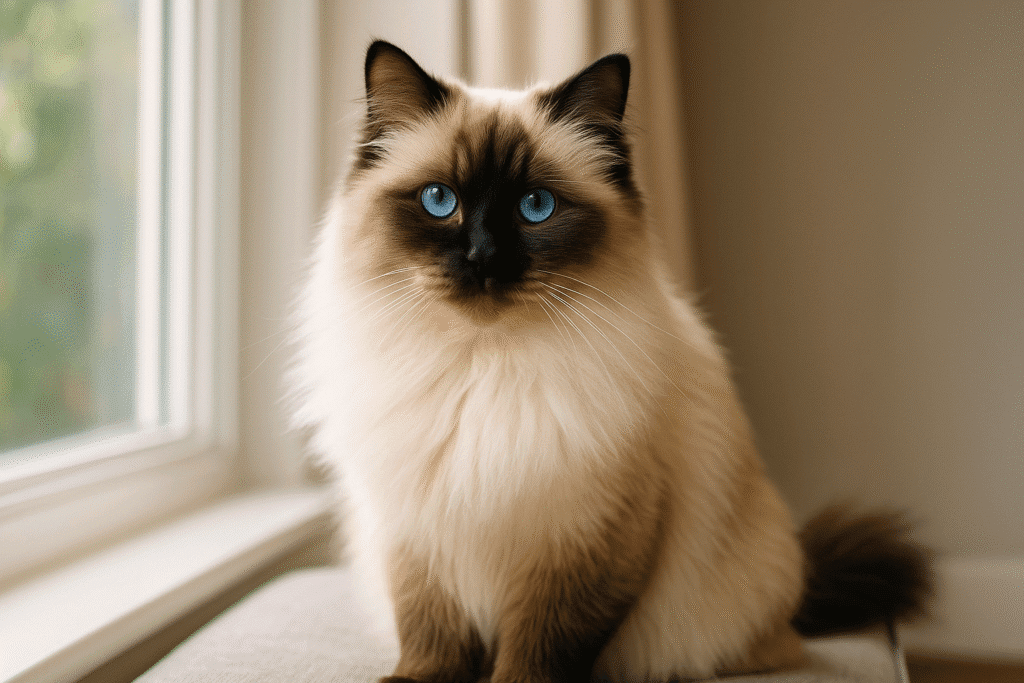The Himalayan Cat is a stunning breed known for its long coat, affectionate personality, and Persian-Siamese heritage. This complete guide covers grooming needs, personality traits, nutrition, and common health issues, helping cat owners provide the best care for a healthy and loving Himalayan companion.
Introduction to the Himalayan Cat
The Himalayan Cat, often called a “Himmie,” is a hybrid between the Persian and Siamese breeds. They combine the luxurious coat of the Persian with the striking blue eyes and color points of the Siamese. Known for their calm yet affectionate nature, Himalayans make excellent indoor companions.

Himalayan Cat Personality & Temperament
Himalayans are affectionate, gentle, and thrive in peaceful households. They enjoy companionship and often bond closely with their owners. Unlike highly active breeds such as the Bengal, Himalayans prefer a quieter lifestyle, often lounging but still enjoying playful interactions.
Are Himalayan Cats Good Family Pets?
Yes, Himalayan Cats adapt well to family life. They are generally good with children and other pets, though their quiet temperament means they appreciate calm environments.
Himalayan Cat Grooming Needs
One of the most important aspects of Himalayan Cat care is grooming. With their dense, long fur, Himalayans are prone to matting and require daily brushing.
Coat Maintenance
- Brush daily with a metal comb or slicker brush.
- Prevent matting by focusing on high-friction areas (underarms, belly).
- Schedule professional grooming sessions every few months.
Bathing & Hygiene
Regular bathing every 4–6 weeks helps control oil buildup. Tear staining around the eyes is common and should be gently cleaned with pet-safe wipes.

Himalayan Cat Health Issues
While loving and beautiful, Himalayans are prone to certain inherited health conditions due to their Persian ancestry.
Common Health Concerns
- Brachycephalic airway syndrome (due to their flat face)
- Polycystic kidney disease (PKD)
- Dental disease from jaw structure
- Eye conditions such as excessive tearing
- Obesity if exercise and diet are not managed
Preventive Health Care
Regular veterinary checkups, genetic screening, and proper nutrition are essential. Indoor living helps protect Himalayans from respiratory stress and environmental risks.
Nutrition & Exercise for Himalayan Cats
Himalayans require a balanced diet to maintain coat health and avoid obesity. High-quality protein sources with omega-3 fatty acids support their skin and coat.
- Feed controlled portions to prevent weight gain.
- Encourage light play with feather toys or climbing trees.
- Use puzzle feeders to add mental stimulation.
Living with a Himalayan Cat
Himalayans thrive indoors with attentive owners who provide grooming and companionship. Their calm demeanor makes them ideal for apartment living, though they do best in quiet environments without excessive noise or chaos.

FAQ: Himalayan Cat Care
Do Himalayan Cats shed a lot?
Yes, Himalayans shed heavily and require daily grooming to manage their long coat.
Are Himalayan Cats high maintenance?
They are considered high-maintenance due to grooming needs, but their gentle personality makes the effort worthwhile.
How long do Himalayan Cats live?
With proper care, they typically live between 9–15 years.
Do Himalayans get along with dogs?
Yes, when introduced properly, Himalayans can live peacefully with calm and friendly dogs.
Conclusion & Call to Action
The Himalayan Cat is a gentle, affectionate, and beautiful companion. While they require consistent grooming and health care, their loving personality makes them a treasured family member.
👉 See more cat breed guides in our Cat Breeds section.
Additional Resources
- (Internal link: Learn about another long-haired breed in our Persian Cat Guide.)
- (Internal link: For a low-maintenance alternative, see our Top 8 Low-Maintenance Cat Breeds.)
- (Outbound link: Read veterinary advice from PetMD Himalayan Cat Overview.)

